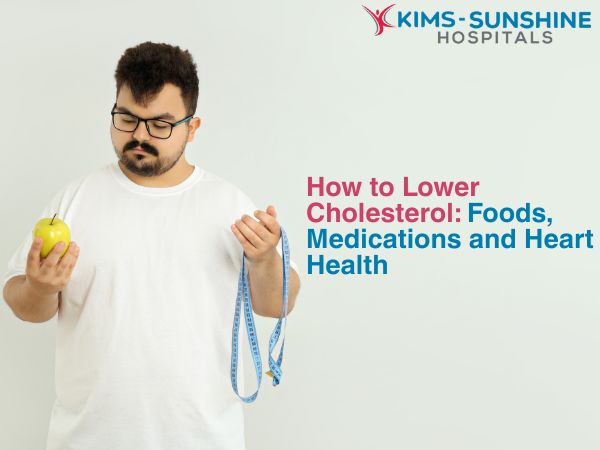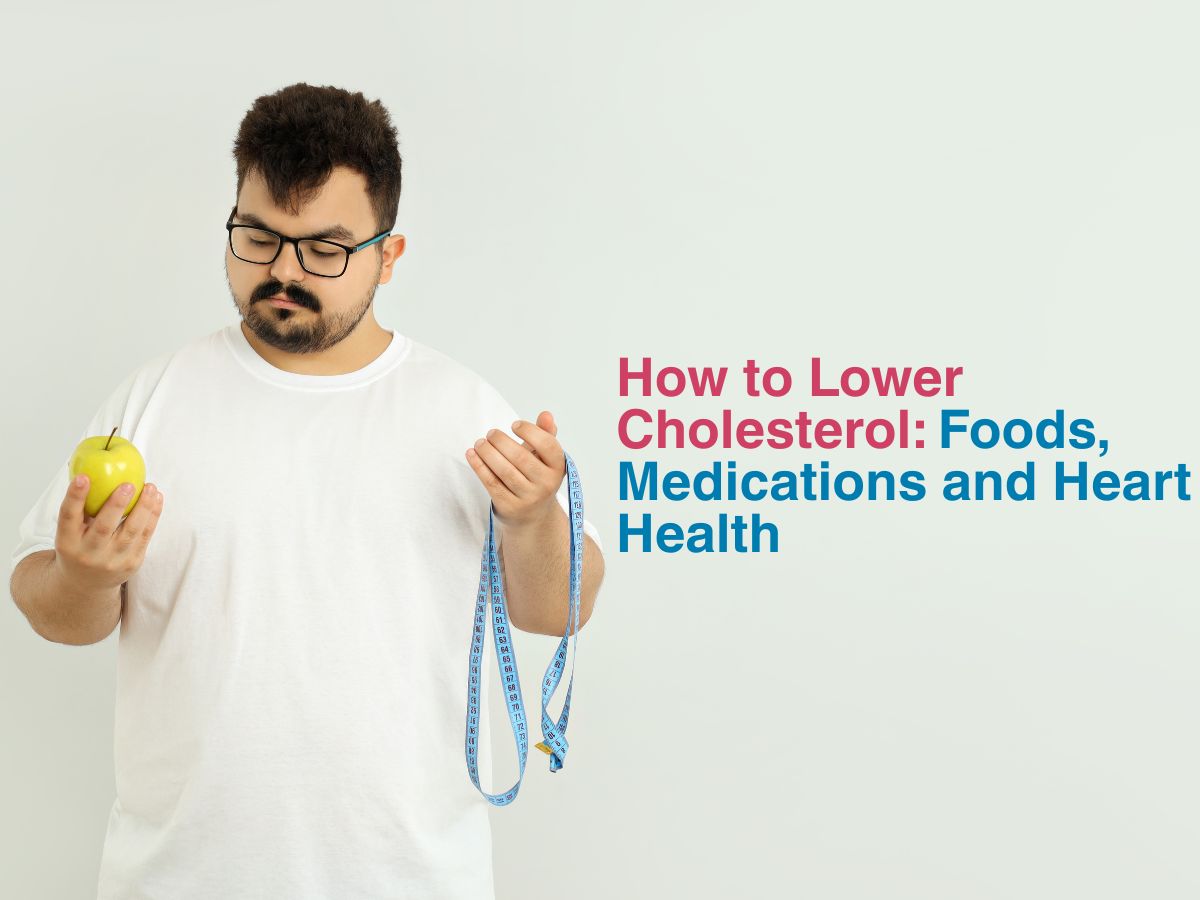
How to Lower Cholesterol: Foods, Medications and Heart Health
How To Lower Cholesterol Naturally With Food
Picture your arteries as city flyovers at rush hour. Now imagine greasy food trucks breaking down in the middle, blocking smooth traffic. That’s what high cholesterol does inside your body. It clogs up the lanes meant for your blood, causing chaos where flow should be free.
Don’t just eat. Curate. Build your plate like a healing thali where each item adds up to repair work. Turmeric-laced dal, a bowl of curd with flaxseed, a wedge of guava and a handful of walnuts. This isn’t dieting. This is housekeeping for your heart.
How Does High Cholesterol Affect Heart Health?
Your heart isn’t just a pump. It’s a lifelong drummer keeping rhythm in your chest. But when cholesterol piles up, it starts adding wet blankets on that drumskin. The beats slow, the rhythm stutters and one day, it may just skip a crucial note.
Cholesterol isn’t evil. It’s like fire. Necessary in the hearth, dangerous when it spreads. There are two kinds: LDL (the lurking kind) and HDL (the helpful bouncer). The trouble begins when LDL sets up camp in your arteries, laying down sticky traps called plaques. Over time, these harden and narrow your blood’s playground. Less space, more pressure. That’s how heart attacks sneak in. Not with a scream but with years of silent stacking. If you come from a family where heart issues run like heirlooms, it’s even more vital to treat cholesterol as more than a number. It’s a warning light. Not to fear, but to steer away from.
How Long Does It Take To Lower Cholesterol
Healing cholesterol is like untangling an old gold chain. Slow, delicate, but definitely possible.
Most people see shifts in 6 to 8 weeks if they give their habits a proper reset. Think of it as clearing a field that’s been overrun with weeds. Every day you eat clean, move more and stress less, you’re pulling out those weeds from the root. But it’s not just about lowering numbers on a lab report. It’s about rewiring rituals. Turning morning chai into green tea. Swapping that second helping of biryani with a bowl of papaya. Trading late-night scrolling for a moonlit walk. These aren’t restrictions. They’re repairs. Medication, when needed, acts like a fast-acting crane clearing a blocked path. But for lasting results, you need gardeners too – in the form of food, movement, rest and time.
Exercise And Cholesterol Control For Heart Health
If food is the locksmith, exercise is the key-turn. It doesn’t just lower LDL; it polishes your HDL till it shines. Think of HDL as the janitor that cleans up the leftover cholesterol clutter. The more you move, the stronger that janitor gets. You don’t need a gym subscription to rescue your heart. Walk like you’re late to meet an old friend. Dance like no one’s counting your steps. Climb stairs like each step is a small rebellion against rust. Movement whispers healing messages to your blood vessels. Let’s not forget stress – that invisible cholesterol multiplier. Pranayama, meditation, deep belly laughs – all of these are tools not just to cope, but to cut through the clutter of modern life.
Conclusion
Cholesterol is not your enemy. It’s a messenger. A mirror reflecting back the choices made in kitchens, on sofas and in offices under harsh lights and forgotten deadlines. Lowering it isn’t about guilt or fear. It’s about a gentle turning back. India is a land of both laddoos and lentils, of samosas and sprouts. It’s not about denying joy. It’s about choosing the kind of joy that stays longer and doesn’t cost your heart later. Build your meals like you would build trust – slowly, lovingly and with good intent. Because the heart, after all, is not just an organ. It’s your oldest companion and it deserves better company.
Frequently Asked Questions
What medications are used to lower cholesterol?
How quickly can cholesterol levels be reduced?
Can exercise help lower cholesterol levels?
What are the side effects of cholesterol medications?
How often should I check my cholesterol?







